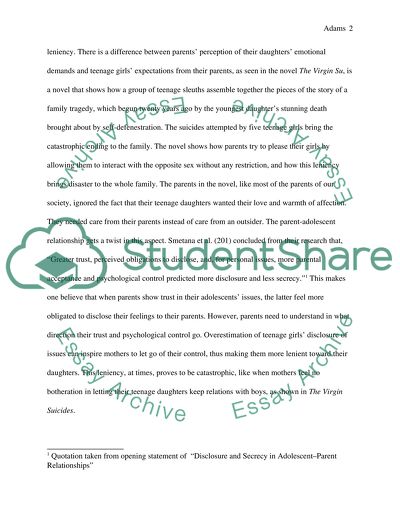Cite this document
(“Relationship between Parents and their Teenage Girls Essay”, n.d.)
Retrieved from https://studentshare.org/literature/1449264-relationships-within-the-virgin-suicides
Retrieved from https://studentshare.org/literature/1449264-relationships-within-the-virgin-suicides
(Relationship Between Parents and Their Teenage Girls Essay)
https://studentshare.org/literature/1449264-relationships-within-the-virgin-suicides.
https://studentshare.org/literature/1449264-relationships-within-the-virgin-suicides.
“Relationship Between Parents and Their Teenage Girls Essay”, n.d. https://studentshare.org/literature/1449264-relationships-within-the-virgin-suicides.


